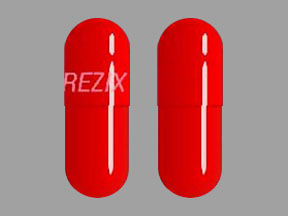
Trezix Coupons & Savings Card – Discount Prices from $77.48
Brand for: Apap-caff-dihydrocodeine
My prescription
Edit
320.5-30-16MG, Apap-caff-dihydrocodeine (100 Capsules)
Select pharmacy

CVS
$118.50
COUPON PRICE
Albertsons
$77.48
COUPON PRICE
Walgreens
$110.92
COUPON PRICE
Walmart
$343.81
COUPON PRICETrezix savings card
Show this card to your pharmacist
Albertsons
$77.48
BIN
ID
PCN
GRP
019876
LH285A23DE
CHIPPO
LHX
Powered by
Related opioid / acetaminophen combinations prescriptions
More prescriptions for pain
Related opioid / acetaminophen combinations prescriptions
More prescriptions for pain
Trezix (Apap-caff-dihydrocodeine) dosage forms
Dosage Quantity Price from Per unit 320.5-30-16MG 100 Capsules $77.48 $0.78
| Dosage | Quantity | Price from | Per unit |
|---|---|---|---|
| 320.5-30-16MG | 100 Capsules | $77.48 | $0.78 |
What is Trezix used for?
Trezix is used for the relief of moderate to moderately severe pain. It is a combination medication that typically contains acetaminophen, caffeine, and dihydrocodeine. It is important for patients to use this medication as prescribed by their healthcare provider to manage pain effectively while minimizing the risk of side effects or dependency.
Is Trezix addictive?
Yes, Trezix can be addictive. It contains dihydrocodeine, which is an opioid and has the potential for abuse and dependence. It is important for patients to use Trezix exactly as prescribed by their healthcare provider and to discuss any concerns about addiction with them.
Is trezix a narcotic?
Yes, Trezix is classified as a narcotic. It contains a combination of acetaminophen, caffeine, and dihydrocodeine, with dihydrocodeine being the narcotic component.
